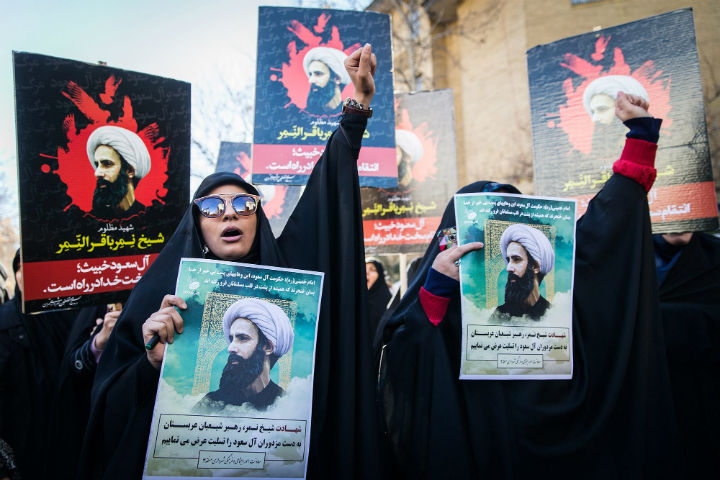Two of the world’s biggest oil producers are embroiled in a fiery diplomatic standoff. But don’t expect it to have much of an effect on global gas prices.

The price of crude oil jumped US $1.35 a barrel early Monday but was dropped back down to $36.76 by the end of the day.
By Tuesday, the benchmark price of crude continued its slide and dipped just below $36 a barrel — a two-week low.
READ MORE: A very brief beginner’s guide to Iran and Saudi Arabia’s renewed rivalry
Tensions between the two Persian Gulf powers probably won’t offset the effect of an ongoing oil glut, says Robert Skinner of the University of Calgary’s School of Public Policy.
Geopolitical jitters have nudged oil prices before: After Turkey downing a Russian jet in November, for example, the price of crude jumped more than two per cent.
But there’s more than enough oil in the market to make up for any political tensions between oil producers.
READ MORE: Oil crash not a repeat of 1985: University of Calgary report
“It is maybe a sense of security from the marketplace that with this seeming glut of crude oil that you can have tensions in Middle East and they don’t count for as much as they used to three or four years ago,” S&P Capital IQ analyst Stewart Glickman told The Associated Press.
- What is a halal mortgage? How interest-free home financing works in Canada
- Capital gains changes are ‘really fair,’ Freeland says, as doctors cry foul
- Ontario doctors offer solutions to help address shortage of family physicians
- Budget 2024 failed to spark ‘political reboot’ for Liberals, polling suggests
On the other hand, strained relations could actually drive the price of oil down further, according to another analyst.
And Canada’s oilpatch has more important things to worry about, Skinner said – such as confidence amid the uncertainty of an NDP government and a federal government that’s been less than welcoming of foreign takeover bids.
“The perception of policy risk in Canada is keeping investment out,” he said.
“It’s the policy context within North America and with Canada, in particular, that is far more important than what’s happening in the Middle East.”


Comments